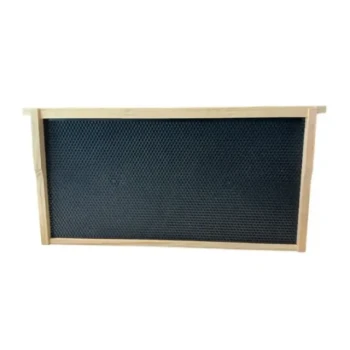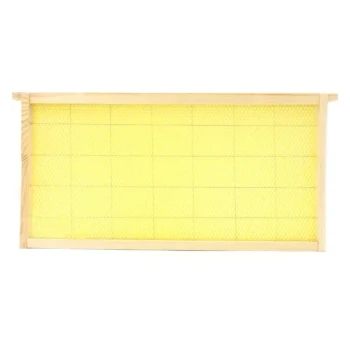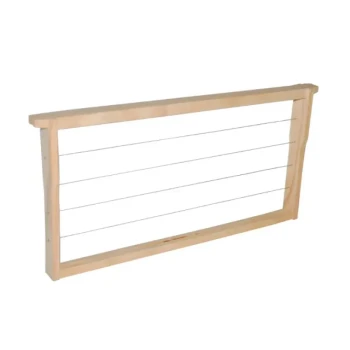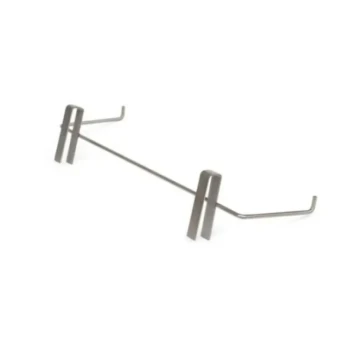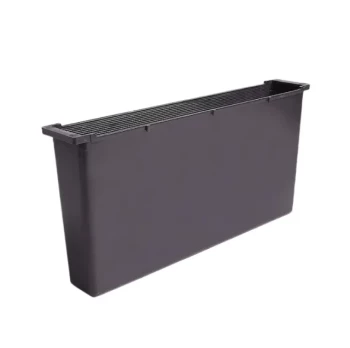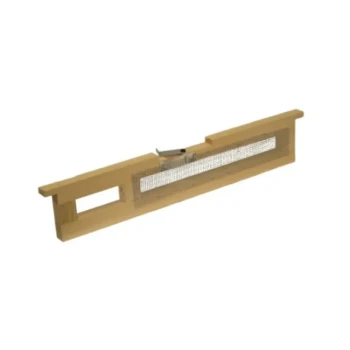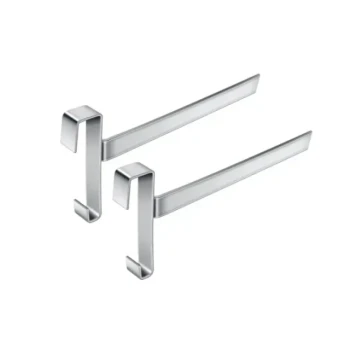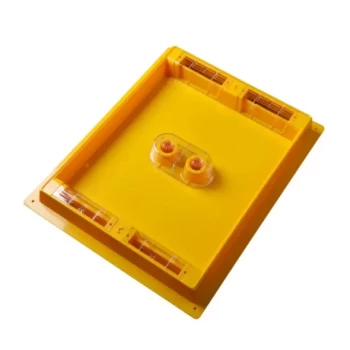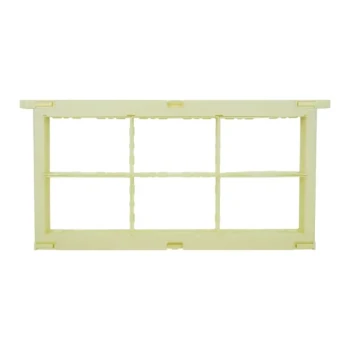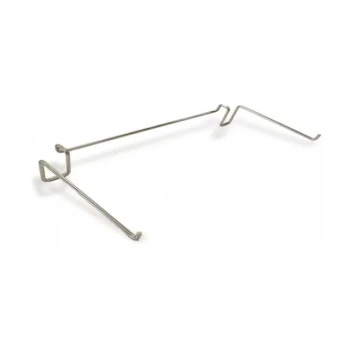In the world of beekeeping, the choice of hive frame is a foundational decision with long-term consequences. The primary advantages of wooden frames over plastic are their unparalleled flexibility with foundation types, their natural composition which is highly compatible with bees, and their repairability. This makes them the only viable option for beekeepers committed to using traditional pure beeswax foundations.
The decision between wood and plastic frames is not about which is universally "better," but rather a choice between the natural flexibility of wood and the engineered convenience of plastic. Your beekeeping philosophy and operational goals should be the deciding factor.
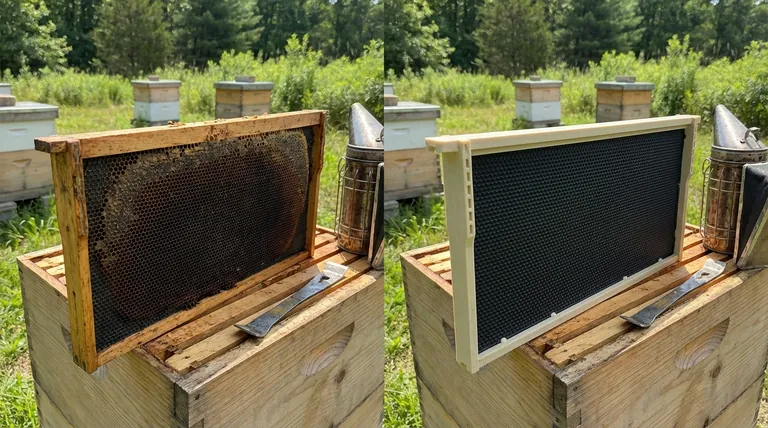
The Case for Wooden Frames: Tradition and Flexibility
Wooden frames are the traditional standard in beekeeping for several compelling reasons. They appeal to beekeepers who prioritize natural materials and adaptability in their hive management.
Natural and Bee-Friendly Material
Wood is a natural, sustainable material that bees readily accept. Frames made from sustainably sourced wood are considered eco-friendly and bee-friendly, allowing a new colony to adapt and begin their work quickly.
Unmatched Foundation Versatility
This is arguably wood's greatest strength. Wooden frames allow a beekeeper to use any type of foundation they prefer—from pure beeswax sheets to plastic inserts. Crucially, they also support foundationless beekeeping, giving the bees complete control over comb construction.
Repairability and Strength
If a wooden frame is damaged during inspection or honey extraction, it can often be repaired with simple tools, glue, and nails. They also stand up well to the rotational forces of a honey extractor, making them less likely to warp or bend during the harvest process.
The Case for Plastic Frames: Durability and Efficiency
Plastic frames represent a modern approach focused on lowering maintenance, increasing durability, and streamlining the beekeeper's workflow. They are designed for longevity and ease of use.
Built for Durability and Pest Resistance
Solid plastic frames are exceptionally durable and typically outlast their wooden counterparts. Pests like wax moths cannot burrow into or eat solid plastic, providing a significant advantage in preventing hive damage and infestation.
Lightweight and Ready-to-Use
Plastic frames are lighter than wood, which makes lifting a box full of honey significantly easier. They almost always come fully assembled with a built-in plastic foundation, saving the beekeeper significant time and labor.
Cost-Effectiveness Over Time
While the initial cost may be comparable, the superior durability and low maintenance of plastic frames can make them more cost-effective over the long term, as they require less frequent replacement.
Understanding the Key Trade-offs
Neither frame material is perfect. The right choice depends on understanding their inherent limitations and how they align with your priorities.
Maintenance vs. Material Purity
Wooden frames require more maintenance and are susceptible to pests, but they are the only option for a beekeeper wanting to maintain a pure, all-natural hive environment using only beeswax foundation.
Vulnerability to Elements
Plastic's primary weakness is high heat; frames left in a hot car or storage shed can warp irreparably. While wood is more resilient to heat, it is vulnerable to moisture and pests if not properly maintained.
Flexibility vs. Simplicity
Wooden frames offer maximum flexibility but require assembly and foundation installation. Plastic frames are the epitome of simplicity—ready to go right out of the box—but offer zero flexibility, as the built-in plastic foundation cannot be changed.
Making the Right Choice for Your Apiary
Your decision should be a direct reflection of your goals and beekeeping style.
- If your primary focus is natural beekeeping and foundation flexibility: Choose wooden frames. They are the only way to use pure beeswax foundation or to practice foundationless beekeeping.
- If your primary focus is durability, low maintenance, and pest resistance: Choose plastic frames. Their resilience and ready-to-use design will save you significant time and effort over the long run.
- If your primary focus is minimizing labor and maximizing efficiency: Choose plastic frames. The pre-assembled nature allows you to get hives ready for bees in a fraction of the time.
Ultimately, the right frame is the one that best aligns with your personal beekeeping philosophy and operational goals.
Summary Table:
| Feature | Wooden Frames | Plastic Frames |
|---|---|---|
| Material | Natural, sustainable wood | Durable, engineered plastic |
| Foundation Flexibility | High (beeswax, foundationless, etc.) | Low (built-in plastic foundation only) |
| Repairability | High (easily fixed with tools) | Low (difficult or impossible to repair) |
| Pest Resistance | Lower (susceptible to wax moths) | Higher (pests cannot damage solid plastic) |
| Heat Sensitivity | More resilient | Can warp in high heat |
| Best For | Natural beekeeping, foundation flexibility | Durability, low maintenance, efficiency |
Equip Your Apiary with the Right Frames
Choosing the correct frames is critical for hive health and productivity. Whether your operation prioritizes the natural flexibility of wooden frames or the durable efficiency of plastic, HONESTBEE supplies commercial apiaries and beekeeping equipment distributors with the high-quality, wholesale-focused supplies they need to succeed.
Let us help you make the best choice for your bees and your business. Contact HONESTBEE today to discuss your frame needs and place your wholesale order.
Visual Guide
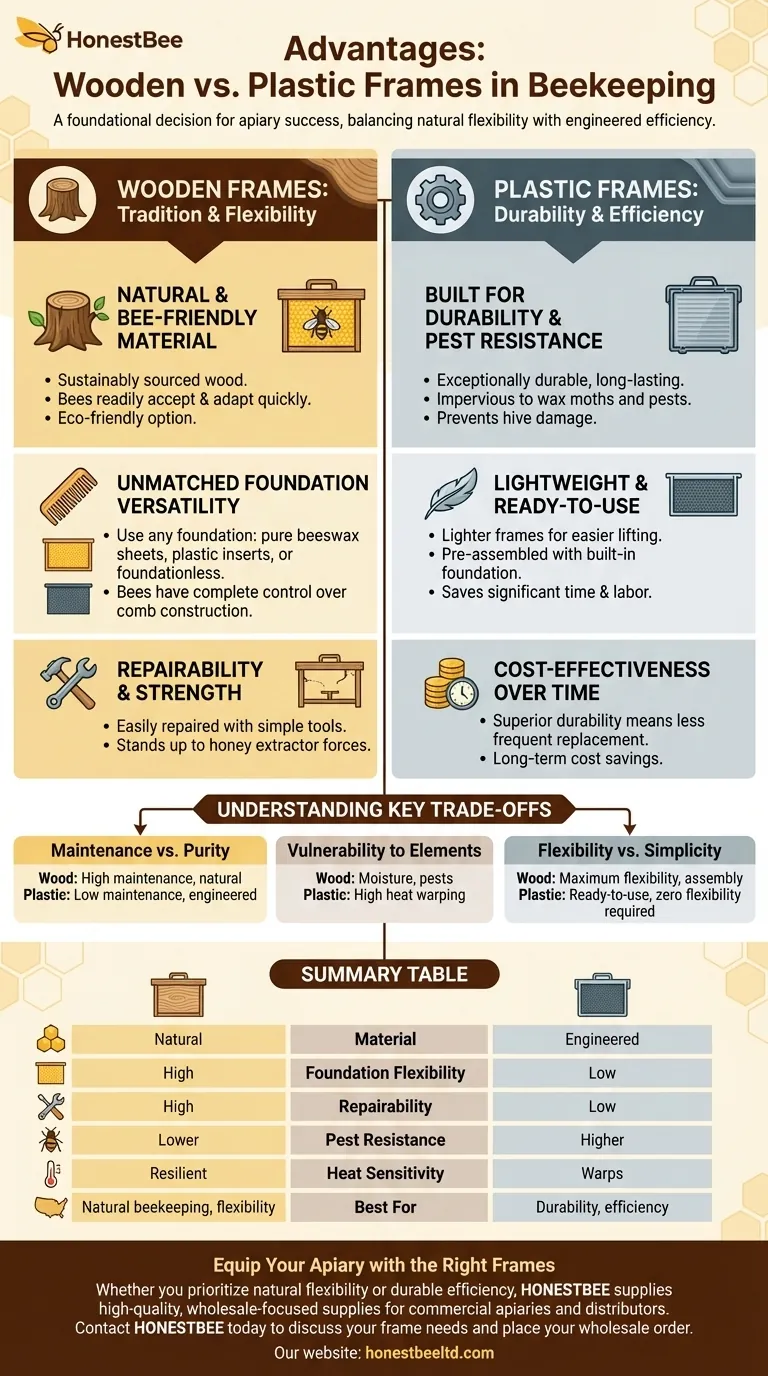
Related Products
- Assembled Wooden Bee Frames with Plastic Foundation for Durability and Convenience by HONESTBEE
- Plastic Bee Frame Beekeeping Hive Frames for Wholesale
- Assembled Wooden Bee Frames with Beeswax Foundation Ready to Use by HONESTBEE
- HONESTBEE Wired and Assembled Wooden Bee Frames Foundation for a Thriving Hive
- Heavy-Duty Stainless Steel Clip-On Frame Perch
People Also Ask
- How should you dry bee frames after cleaning? Prevent Warping and Ensure Hive Health
- What role do frames play in a beehive? The Key to Modern, Manageable Beekeeping
- What materials are used to make beehive frames? Wood vs. Plastic for Your Apiary
- What are the different types of beehive frames? A Comprehensive Guide for Commercial Apiaries
- Can I reuse old frames? A practical guide to saving money and reducing waste
